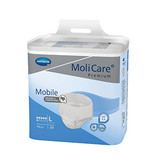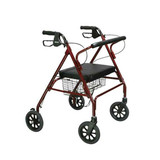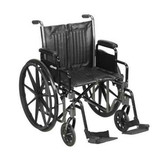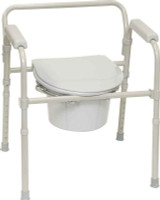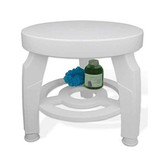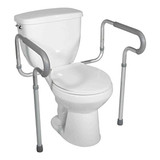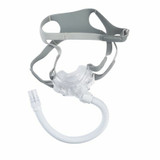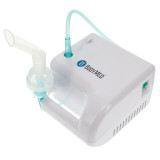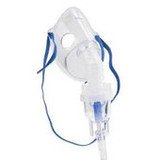
The Caregiver Guide - Coping with Depression and Anxiety
While depression and anxiety aren’t directly life-threatening conditions, they are, nevertheless, serious clinical issues. They’re sometimes difficult to diagnose and, therefore, underdiagnosed. The result is that victims often resort to self-medication, substance abuse or suicidal thoughts and, left untreated, may eventually result in tragedy.
Depression and anxiety aren’t a natural consequence of aging, but they are more prevalent among older people. This is largely due to a higher incidence of illness, grief, loss of ability to perform daily tasks and social withdrawal. Fortunately, depression is not that common. This report from the Centers for Disease Control and Prevention (CDC) puts the estimate at between 1% and 5% among people living in the community and 11.5% to 13.5% among those in medical or care facilities.
Recognizing the signs and symptoms of senior depression and anxiety facilitates early intervention and may improve the effectiveness of treatment. It is also important for caregivers and family members to be aware of these mental health issues in order to provide appropriate type and level of support.
Signs and Symptoms of Depression and Anxiety
Depression is not just “feeling a bit down” or being emotional about the loss of a loved one. It is an ongoing medical condition, much like diabetes or anemia. The good news is that, although there’s no cure, as such, it can be managed.
Common signs of depression include persistent sadness, feeling hopeless or worthless, loss of interest in activities hitherto enjoyed, changes in appetite or weight, sleep disturbances, and difficulty concentrating. Some patients may also exhibit physical symptoms such as unexplained or worsening pain.
Anxiety can manifest as excessive worry or fear about everyday situations, restlessness or irritability, trouble sleeping or staying asleep, fatigue or lack of energy, difficulty concentrating or making decisions, and physical symptoms such as rapid heartbeat or shortness of breath.
In addition to these emotional and psychological indicators, patients may exhibit behavioral changes such as social withdrawal or isolation, not engaging in activities they used to enjoy, being irritable or agitated without apparent cause, neglecting personal hygiene or appearance, and expressing feelings of guilt or worthlessness.
Depression can sometimes be difficult to distinguish from grieving as they share so many traits. The key thing to remember is that grieving is a state of sadness or melancholy that can be interspersed with moments of joy. Grieving is a process that does heal eventually, whereas depression is much longer lasting and usually smothers happiness completely. When sadness begins to seem all-consuming and persistent, it may be time to seek professional help.
Coping Strategies for Caregivers
Untreated depression and anxiety are bound to eventually have a significant impact on the patient’s quality of life. Patients may struggle to maintain their independence, experience a decline in cognitive function, have an increased risk of developing other medical conditions like cardiovascular disease or dementia, and face higher mortality rates.
An essential coping strategy is to ensure open communication with the patient. Encouraging them to express their feelings and concerns can help alleviate some of the emotional burden they may be experiencing. It’s also important to listen actively and with empathy so that the patient feels comfortable sharing their thoughts and fears.
Establishing routines that include a variety of stimulating activities such as regular physical exercise, hobbies, or social interactions helps to boost the mood and provides a sense of purpose. Therapy options such as cognitive-behavioral therapy (CBT), managing possible medication issues, and providing a supportive community environment also help preserve quality of life.
And remember, as a caregiver, you should never forget to look after yourself. Caregiver burnout is real, and it detracts from the quality of care that you can provide. Take breaks, enlist support from family members, other caregivers or support groups, and make time for your own hobbies or interests. To learn more about self-care and avoiding burnout, click here.
Caring for a person with chronic depression or anxiety adds a whole extra layer to a caregiver’s burden. Try to lighten the load by automating some of your routine tasks. For example, at LL Medico, we can look after your care supplies to ensure that you have one less thing to fuss with. Whether it be adult diapers, nutritional supplements or diabetic supplies, our Autoship feature ensures you always have what you need when you need it.
When to Seek Medical Intervention
Despite your best efforts as a caregiver, there may come a time when you have to call in professional help. Therapy can be highly beneficial as it provides a safe space for patients to express their feelings and concerns while receiving guidance from trained professionals. Therapists can also help patients develop coping mechanisms and manage stress.
In some cases, medication may be necessary to address mental health problems. Psychiatrists or geriatric specialists can prescribe medications that effectively alleviate the symptoms of depression or anxiety. As with all pharmacological interventions, medication should only be prescribed by an appropriately qualified professional and should be administered in strict accordance with the prescription.
Seeking medical intervention is not a sign of failure on your part. It’s important to recognize that the condition may sometimes be beyond your expertise or efforts. If you notice persistent changes in mood, behavior, or functioning in your patient, it probably indicates that they need professional help. If symptoms are significantly impacting their daily life or if they express thoughts of self-harm or suicide, you must get professional medical attention urgently.
Lifestyle Considerations
Lifestyle is a cornerstone of overall health and well-being. Mental health is no exception. According to this National Library of Medicine report, “A number of lifestyle factors have been recognised to play an important role in positively modifying medical and psychiatric diseases and their associated morbidity and mortality. These include, eating healthy food, greater physical activity, cessation of smoking, avoidance of alcohol and illicit substances. “
Engaging in senior-friendly exercises specifically designed for mental health also brings numerous benefits. These exercises not only improve cognitive function but also enhance mood and reduce the risk of depression and anxiety.
It’s equally important to encourage or facilitate social engagement. Participation in group activities, such as book clubs, art classes, or community events, provides opportunities for social interaction and helps to stave off loneliness or feelings of isolation.
Lastly, a positive mindset is a great booster for mental health patients. Mindfulness practices, such as meditation or yoga, help manage stress and create a sense of inner peace. A positive mindset is also

















